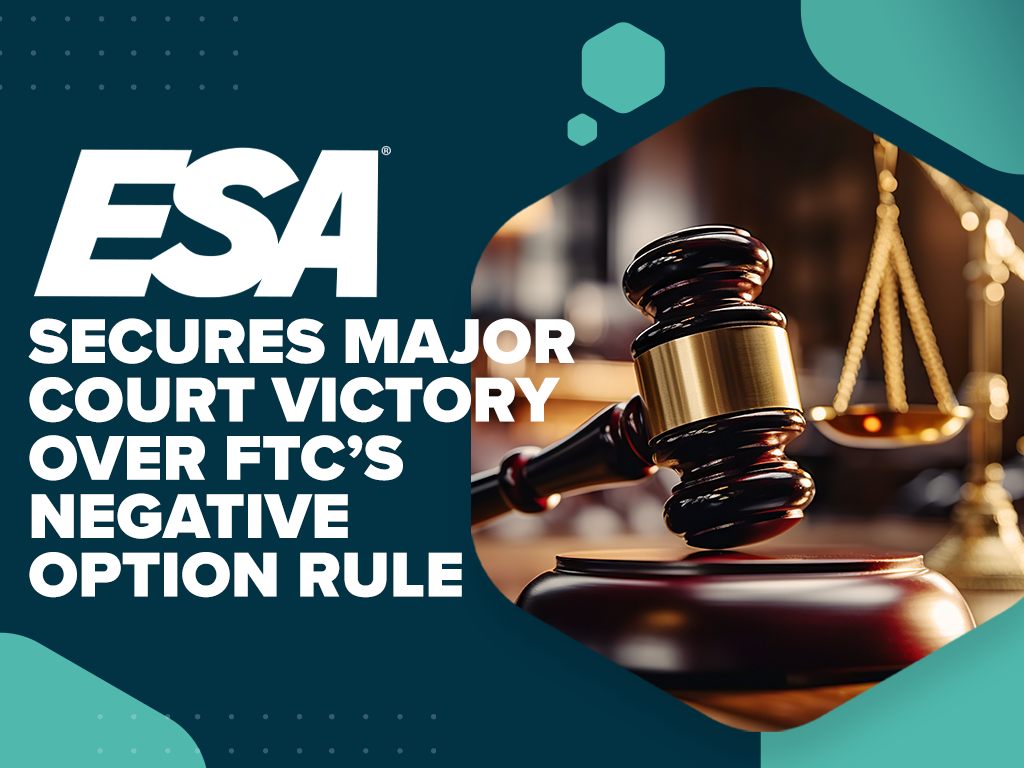ESA Secures Major Court Victory Over FTC’s Negative Option Rule

July 8th marked a win for the Electronic Security Association in the U.S Court of Appeals for the Eighth Circuit as they successfully challenged the Federal Trade Commission’s Negative Option Rule alongside a group of petitioners including the US Chamber of Commerce. The court ultimately sided with our argument over renewal services. This decision prevented disruptions, to essential security and safety services nationwide.
The FTC’s regulation was aimed at companies that have renewal service agreements in place. It demanded that these businesses provide more transparent terms to consumers and obtain explicit consent before renewing contracts automatically without any additional action required on the customers’ part, such as clicking a button to cancel the service online easily and quickly. It became clear that applying the standards to fields like alarm monitoring and life safety systems was a significant oversight and not appropriate.
If the proposed regulation had been put into place it would have had a risky effect on the security and life safety industry. The reliability of security and fire monitoring services relies heavily on uninterrupted monitoring. Clients usually expect their systems to be operational, at all times, especially if no steps are taken to deactivate them. The FTCs uniform cancellation procedure might have led to service interruptions leaving households, schools and commercial establishments vulnerable. Many consumers face the risk of service cancellation without their knowledge if they often update payment details or contact information and miss notifications in the process. This lack of awareness could result in property damage or delays, in emergency assistance.
In October 2024 ESA filed a challenge stating that the rule was not just unlawful but also overlooked the role security providers have in ensuring public safety. The court sided with ESA and judges were sure to point out that the FTC had skipped a step by not conducting a thorough economic analysis before implementing a rule, with significant implications. Additionally, there were doubts raised by judges regarding the agency’s power to enforce standards.
This decision goes beyond being a victory; it safeguards ESA members from excessive regulatory hurdles and most importantly ensures the public’s safety from unforeseen disruptions. ESA is dedicated to advocating for policies and regulations that truly reflect the operations and importance of our industry.




